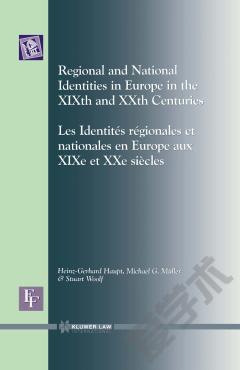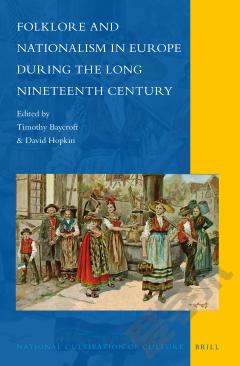Regional and National Identities in Europe in the XIXth and XXth Centuries —— Regional and National Identities in Europe in the XIXth and XXth Centuries
----- 欧洲论坛:十九世纪和二十世纪欧洲的地区身份和国家身份
In late 20th-century Europe, both national and regional loyalties have retained a surprising strength and topicality, despite the advance of supra-national integration. This volume addresses some specific aspects of this phenomenon that lay at the centre of the interdisciplinary work of the first 'European Forum' of the European University Institute in Florence during the academic year 1993/94. It aims at contributing to a better understanding of the origins and the nature of territorially-based identities in Europe, and also offers some analysis of current problems arising at various levels of the relationships between regional, national and international structures.The contributions to this volume refer to three major fields of historical and contemporary research:1. The study of the factors that constitute 'territorially-based imagined communities'. Under what conditions can certain cultural characteristics shared by a given group (such as language, religious affiliation or cultural heritage) acquire social and political meaning in a process of creating territorial loyalties! And how do regional and national loyalties relate to other patterns of particularist group identities! In examining these questions, special attention is given to the concept of 'primordial' identities and to the problem of ethnicity.2. The analysis of the mechanisms by which particular group interests (social, political or cultural) are 'translated' into narratives of regional or national identity. The loyalty to a community within a given territory is never merely a product of 'invention' and of arbitrary ideological indoctrination. However, the social and political functions of such loyalties cannot be understood without considering the fact that the meanings attributed to them reflect the outcome of a continuous 'lutte de définition' among different social groups. Trying to identify both the underlying collective interests and their symbolic representations is therefore a major concern.3. An enquiry into the relationship between national and regional identities. The recent experiences of the political reemergence of regionalism in Europe have put in question assumptions about the triumph of the nation state and, subsequently, of supra-national forms of integration as the 'necessary' outcome of a teleological process. Different territorial loyalties can apparently coexist, and even reinforce each other, and the circumstances under which one of these affiliations overtakes the others deserve specific attention.
{{comment.content}}








 京公网安备 11010802027623号
京公网安备 11010802027623号